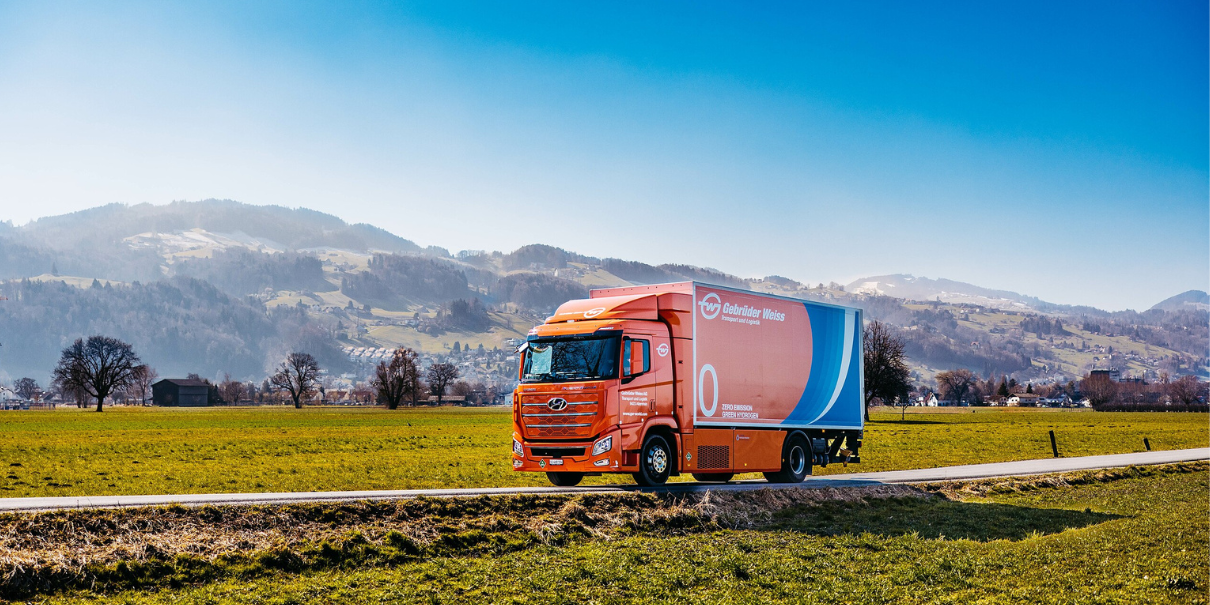What role hydrogen will play as a fuel in 2030?
Jan Carsten Gjerløw: Hydrogen will play an important role. Most of the road transport will be electric, but ACEA (The European Automobile Manufacturers’ Association) estimates that approx. 70,000 hydrogen trucks will be required in Europe by 2030 if the CO2 requirements for truck manufacturers are to be met. We are experiencing great interest in hydrogen trucks in Norway and through the H2Truck project we will have the first 100 MAN hTGX trucks on the road from 2025. In addition, hydrogen is relevant for other heavy vehicles such as construction machinery, and not least in maritime transport.
Marcus Schober: I agree and would like to add that hydrogen will play an important role as fuel for trucks, but also for decarbonising ships and airplanes. According to current forecasts, a hydrogen demand of 600.000 to 700.000 tonnes per year is expected for Germany in 2030, indicating its growing importance.
Claudio Vitalini: 40% of the CO2 emissions derive from mobility, especially in the Alpine cross-border regions. Therefore, hydrogen will have a fundamental role for decarbonising heavy-duty logistics. In the last three years, the Italian government has been financing projects in the green hydrogen sector for about 30 new production sites and 50 new refuelling stations, mainly on the main motorways and TEN-T corridors. This operation has been possible in such short time thanks to the National Recovery and Resilience Plan (PNRR).
What are the main benefits of hydrogen compared to other zero or low emission fuels?
Marcus Schober: When comparing fuel cell trucks with battery-powered ones, the main advantages are the increased range and the short refuelling time. Due to the higher efficiency of battery-powered vehicles, the use of hydrogen should be focused on areas of application where direct electrification is not possible. You can also compare hydrogen to e-fuels or other artificial fuels which have a much lower efficiency in production.
Claudio Vitalini: Hydrogen trucks are ideal for heavy load and long-haul logistics. Compared to battery trucks they don’t need a widespread high performance electrical infrastructure for the charging points. The very short refuelling times, in the range of minutes, make them attractive to logistic operators. As zero emission fuel, hydrogen enjoys an exemption to the night-drive ban in Austria (Tyrol), which gives them a competitive advantage in the sector.
Jan Carsten Gjerløw: Indeed, the main advantage is, that you can operate a hydrogen-powered heavy-duty vehicle the same way as with diesel. In a world with geopolitical instability and a climate crisis that causes more heavy weather influencing basic infrastructure, it is important for security of supply that we have more than one zero-emission fuel. Hydrogen provides greater flexibility in the use of the truck.
What are the main challenges to be addressed to make hydrogen as a fuel happen and how to address them?
Marcus Schober: Of course, we know that currently the biggest challenges in introducing hydrogen vehicles are the high vehicle costs, the fuel costs and the availability of refuelling infrastructure. A demand-driven expansion of refuelling infrastructure and a reliable supply of green hydrogen are the main factors for successful implementation. And of course, for green hydrogen, you need a vast expansion of renewable energy sources.

 Jan Carsten Gjerløw is CEO of
Jan Carsten Gjerløw is CEO of 
